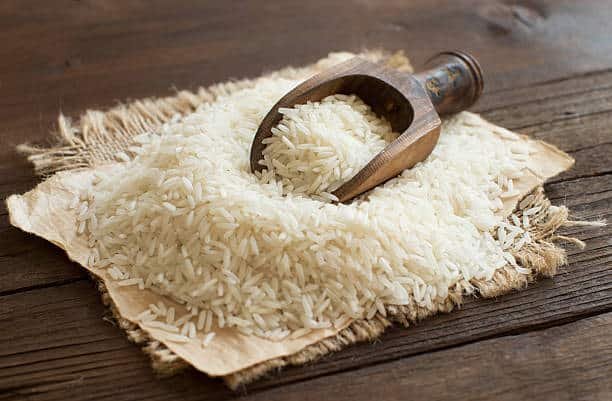As someone who has been navigating the complexities of a Gluten-Free diet due to my celiac disease, I’ve learned the importance of scrutinizing every food item that makes its way into my kitchen. It’s a journey fraught with challenges, but also filled with discoveries. One such discovery was about basmati rice – a staple in my household. Basmati rice is naturally Gluten-Free!
Contents
Understanding Celiac Disease
Before diving into the specifics of basmati rice, let me briefly touch upon celiac disease. It’s an autoimmune disorder where the ingestion of gluten leads to damage in the small intestine. Gluten is a protein found in wheat, barley, and rye. Living with this condition means being perpetually vigilant about my diet.
What is Basmati Rice?
Basmati rice is a unique variety of long-grained rice that is traditionally grown in the Indian subcontinent, particularly in India and Pakistan. This type of rice is well-known for its distinctive aroma and flavor, which are attributed to the presence of a specific compound called 2-acetyl-1-pyrroline. Here are some key features and facts about basmati rice:
- Long, Slender Grains: Basmati rice grains are longer, slenderer, and more elongated than typical white rice. When cooked, these grains expand in length rather than width, resulting in a fluffy and non-sticky texture.
- Aromatic: One of the most notable characteristics of basmati rice is its fragrant aroma, which is often described as slightly nutty or floral. This aroma intensifies during the cooking process.
- Flavor Profile: Basmati rice has a unique, slightly nutty flavor that distinguishes it from other types of rice. This makes it a preferred choice for many rice dishes, especially in Indian, Middle Eastern, and Persian cuisines.
- Varieties: There are several varieties of basmati rice, including both white and brown versions. Brown basmati rice retains its outer bran layer, making it richer in fiber and nutrients compared to white basmati rice, which has been milled and polished.
- Culinary Uses: Basmati rice is commonly used in a variety of dishes such as biryanis, pilafs, and as a side for curries. Its ability to absorb flavors makes it ideal for recipes where rice is cooked with spices, herbs, and broths.
- Geographical Indication: Authentic basmati rice is traditionally sourced from specific regions in India and Pakistan. The geographical conditions of these regions contribute to the unique characteristics of basmati rice.
- Nutritional Value: Basmati rice is a good source of carbohydrates and energy. It also contains some protein, minimal fat, and is generally Gluten-Free, making it suitable for those with gluten sensitivities or celiac disease.
- Cooking Method: The traditional method of cooking basmati rice involves soaking the rice before cooking. This helps to reduce the cooking time and ensures that the grains elongate properly without breaking.
Is Basmati Rice Safe?
The primary question that loomed over my head was: “Does basmati rice contain gluten?” This wasn’t just a matter of dietary preference, but a health necessity for me.
The Gluten-Free Verdict on Basmati Rice
Here’s the good news – basmati rice is naturally Gluten-Free! This was a relief to discover, as it meant I could continue to enjoy my favorite dishes like biryani and pilaf without worry.
Cross-Contamination: A Hidden Threat
However, the journey doesn’t end with knowing that basmati rice is Gluten-Free. Cross-contamination is a significant concern for those with celiac disease. If basmati rice is processed or packaged in facilities that also handle gluten-containing grains, there’s a risk of cross-contamination.
My Personal Measures for Safety
To ensure that my basmati rice is truly Gluten-Free, I always:
- Purchase brands that are certified Gluten-Free.
- Look for packaging that indicates the rice was processed in a Gluten-Free facility.
- Rinse the rice thoroughly before cooking, as a precautionary measure.
The Role of Basmati Rice in My Gluten-Free Diet
Basmati rice has become a cornerstone in my Gluten-Free kitchen. It’s versatile, easy to digest, and most importantly, safe for my condition. It allows me to experiment with various cuisines while keeping my health in check.
Sources
- Types of Gluten-Free Rice: https://www.webmd.com/diet/types-of-gluten-free-rice
- Is Basmati Rice Gluten Free? A Detailed Explanation: https://k-agriculture.com/is-basmati-rice-gluten-free-a-detailed-explaintion/
- Is Basmati Rice Gluten Free? https://ditchthewheat.com/is-basmati-rice-gluten-free/
- Is Basmati Rice Gluten-free? https://www.rachaelroehmholdt.com/is-basmati-rice-gluten-free/
- Is Basmati Rice Gluten Free? https://casadesante.com/blogs/gut-health/is-basmati-rice-gluten-free
- Can I Have Basmati Rice On A Gluten Free Diet? https://punchfoods.com/basmati-rice-gluten-free/
- Examining the Gluten-Free Status of Basmati Rice: https://mtwildflowerkitchen.com/blog/is-basmati-rice-gluten-free/


